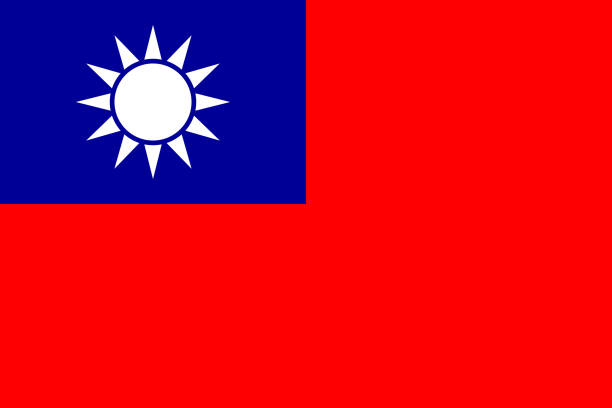Overview
A Certificate of Eligibility (COE) is an official document issued by the Japanese Immigration Services Agency that certifies a foreign national’s qualification for a specific status of residence (visa category) in Japan. In essence, the COE is a preliminary approval from immigration authorities in Japan that the applicant meets the requirements to enter and stay in the country for a given purpose (such as work, study, or family stay). Obtaining a COE is a critical first step for most long-term visas. The primary advantage of the COE is that it greatly speeds up the visa issuance process: when a person presents a COE at a Japanese embassy or consulate, it signals that Japan’s immigration has already vetted the person’s background and intent, making the final visa a formality in many cases . The COE system helps ensure that when foreigners arrive in Japan, their entry is smooth and pre-authorized for the stated activity.
Application Process
The application for a Certificate of Eligibility is made in Japan by a sponsor on behalf of the foreign applicant . This sponsor could be an employer (for a work visa), a school (for a student visa), a family member (for dependent or spouse visas), etc., who resides in Japan. For example, if a company in Japan hires a foreign engineer, the company will prepare and submit the COE application to immigration, including documents such as the employment contract, company information, the foreigner’s resume and qualifications, and evidence that the job and candidate meet the visa criteria (in this case, the Engineer/Specialist in Humanities/International Services status requirements). The application is submitted to the regional immigration office with jurisdiction over the sponsor’s location. Immigration officials review the application to ensure that the prospective entrant fulfills all legal requirements (such as possessing any required degrees or work experience, and that the sponsoring organization is capable of fulfilling its obligations).
The processing time for a COE is typically 1 to 3 months , though it can vary. If approved, the immigration office issues the Certificate of Eligibility – a paper document with the applicant’s details, intended status of residence, period of stay, and sometimes a photo. The sponsor then sends the original COE to the foreign applicant in their home country. (Many immigration offices are moving toward digital systems, but as of mid-2020s, an original paper COE is still usually required.) If the application is denied, immigration will notify the sponsor, who must then inform the applicant; a denial means the visa process cannot proceed, often due to unmet requirements or documentation issues.
Using the COE for a Visa
Once the foreign national receives the Certificate of Eligibility, they can apply for an actual visa at the Japanese embassy or consulate in their country of residence. The visa application with a COE is generally straightforward: the applicant submits the COE, their passport, visa application form, photographs, and any minor additional documents (each embassy’s requirements vary slightly) . Because the substantive approval has already been granted via the COE, the embassy’s role is mainly to perform identity checks and issue the visa stamp. In most cases, the visa (a sticker in the passport) is issued within a few days.
It is important to note that the COE itself is not a visa and cannot be used for entry on its own. Upon receiving a visa, the individual must travel to Japan and present their passport and COE at the port of entry. The immigration officer at the airport will examine the COE and visa; having the COE typically makes this “landing permission” process quick, as the officer just verifies the COE’s authenticity and that nothing has changed. The officer then issues a Residence Card (for stays over 90 days) and endorses the status of residence. One restriction to keep in mind is that the COE has a limited validity: the individual must enter Japan within 3 months of the COE’s issuance date . If they do not, the COE expires and a new one must be obtained. The duration printed on the COE (e.g. a 1-year or 3-year status) indicates the allowed period of stay after entry, not the validity of the COE itself.
For certain categories (short-term visits, tourist visas, or some special cases like Working Holiday visas), a COE is not required. But for standard work visas, student visas, dependent visas, etc., the COE is essentially a prerequisite. Japanese embassies will generally not issue a work/study/dependent visa without a COE – attempting to apply for a long-term visa without it will usually result in instructions to obtain a COE first .
Importance
The Certificate of Eligibility is a cornerstone of Japan’s immigration procedure for long-term stays. For employers and educational institutions in Japan, understanding the COE process is crucial, as they often take on the responsibility of sponsorship. A timely and successful COE issuance means the new hire or student can arrive in Japan on schedule. Delays or denials can disrupt business plans or academic timelines. Companies in Japan frequently work with immigration specialists (行政書士 or legal scriveners) to handle COE applications professionally, given the detailed paperwork involved.
From the perspective of foreign applicants, the COE can sometimes be a source of anxiety simply because it takes a couple of months to receive, during which time one cannot apply for the visa. However, once the COE is granted, applicants can be quite confident that their visa will be issued. The COE essentially flips the process: instead of the vetting happening at the consulate (which is how many countries handle visas), Japan does the vetting internally first. This internal review ensures consistency and control – Japanese immigration authorities can directly verify employers and schools, and impose standards nationally.
Legally, having a COE does not guarantee entry – one must still meet health and security criteria at the border – but it’s rare for a COE holder with a valid visa to be denied entry. One should also be aware that if too much time passes or circumstances change (e.g., a job offer is withdrawn), the COE may become unusable. If a person cannot travel within 3 months of issuance, they would need a new COE (which might involve the sponsor reapplying).
In summary, the Certificate of Eligibility streamlines the immigration process by front-loading the eligibility check. It is a vital document for any foreign national planning to work, study, or live in Japan for more than a short visit. Both the sponsor in Japan and the applicant abroad must coordinate to secure the COE and complete the visa process. In an HR context, employers should plan for the COE timeline when onboarding foreign talent (e.g., don’t expect a new hire can start in Japan immediately; factor in a few months for immigration procedures). Conversely, once an employee has a COE and the corresponding visa, it reflects that Japanese immigration has officially sanctioned their stay and purpose, which is a significant hurdle cleared .
Sources: Immigration Services Agency of Japan – Certificate of Eligibility Application Guide ; Japanese Embassy (USA) – COE FAQs







